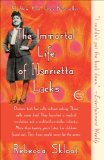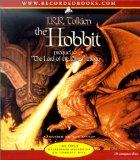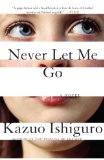[amazon_image id=”0812979656″ link=”true” target=”_blank” size=”medium” class=”alignleft”]The God of Small Things: A Novel[/amazon_image]I bet you thought I had given up reading for good! I admit I have been going through a real dry spell the last year or two, and it’s frustrating because the couple of years right before, I read excellent book after excellent book. I don’t see how I’ll meet my goal of reading 50 books at the pace I’ve moved this year, and much as I would like to give myself a break given that I moved last summer, I feel that at this point, I should have settled into a good reading routine. Bah.
At any rate, Arundhati Roy’s only novel, [amazon_link id=”0812979656″ target=”_blank” ]The God of Small Things[/amazon_link], was the final novel I taught for this school year, and I finished it just a hair before the students. That is Very Bad and I Do Not Recommend It. However, sometimes, it’s all you can do to stay afloat. So of course, I knew how things would shake out, and I didn’t get to see the story unfold naturally, as I would have if I had read it for pleasure. The fact is, I am not sure I would have picked up this book to read for pleasure, and how sad that would have been. It’s a beautiful book.
One of the things folks probably say too much about this novel is that its style is reminiscent of William Faulkner’s, and it truly is. He is a favorite of mine. When I taught the novel, I urged my students to be patient. This novel is like a puzzle. You know how you put it together, and you don’t have the whole picture until you get to the end? But there is a point when you can see how it is going to come out, and you realize what it is you are putting together? That is what this book is: It begins in the middle, and the beginning is somewhere in the middle. The end is in the middle, and the middle is at the end. The nonlinear narrative may pose a challenge for some readers, but it is a worthy one.
To start with, the description of Ayemenem in Kerala, India, is absolutely gorgeous. The green trees drip with fruit and the buzzing and whirring of birds and insects fills the air. The river, the deceptively quiet river Kuttappen describes as looking like “a little old churchgoing ammooma, quiet and clean,” but is “[r]eally a wild thing” (201), as the children learn from personal experience. It seems you can always tell when an author has truly inhabited a place she writes about because the description is so vivid that you inhabit it, too, for the time while you read the book.
I admit the narrative made it difficult to follow and put events in their proper place. A timeline, added to as the reader fills in details, would not go amiss. It will take some time to fall into the flow of the nonlinear narrative. Give this one a little longer than you ordinarily might give a book before giving up on it.
In terms of characters, I found myself fascinated by Ammu, the mother of twins Rahel (from whose point of view most of the novel is told) and Estha. Her choices fascinated me. One minute I found myself empathizing with her, and the next, I hated her. Her aunt, Baby Kochamma, was also a fascinating character. She is a master manipulator the likes of which you rarely see, but she, too, has a kind of tragedy at her core, even if it is of her own device, that provokes pity.
I have to recommend this book highly, most highly to those who enjoy Faulkner and who like to read about exotic locales. If you are not either of those, give it a chance anyway. It’s quite well written—gorgeous, lush prose in the English that for some reason, only Indians can write (I have no idea why that is). Aside from that, it tells the moving story of the destruction and decay of a family because things can change in day.
Rating:


















